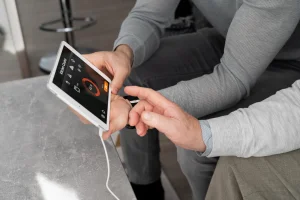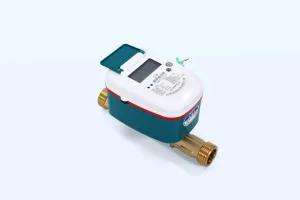A tecnologia inteligente de medição da água substitui os metros manuais tradicionais por sensores ultrasônicos avançados e dispositivos IoT para rastrear automaticamente o uso da água, fornecendo dados em tempo real e reduzindo erros. Medidores de água compartilhados, comuns em apartamentos e espaços comerciais, medim o uso total para múltiplos usuários, abordando questões de justeza e facturação através de análise inteligente. Esses sistemas aumentam a eficiência detectando vazamentos, promovendo a conservação da água e possibilitando contagem precisa. Companhias como Chen Shuo oferecem soluções confiáveis, integrando características como medição multicanal e plataformas de nuvem. Apesar de custos iniciais mais elevados, metros inteligentes poupar dinheiro a longo prazo e apoiar a gestão sustentável da água, com futuros avanços esperados em previsões conduzidas pela AI e políticas ecológicas.
A medida inteligente da água é um grande passo adiante de metros de água antigos. Os metros tradicionais precisam de alguém para lê-los à mão. Em contraste, os metros inteligentes usam ferramentas modernas como sensores ultrasônicos e dispositivos IoT para rastrear o uso da água automaticamente. Esses metros de água compartilhados são dispositivos inteligentes embalados com características avançadas. Elas trabalham sensando fluxo de água muda instantaneamente com sensores sensíveis. Esses sensores transformam o movimento da água em sinais elétricos com grande precisão.

Um pequeno computador dentro do metro processa esses sinais. Então, os dados viajam através de conexões sem fio ou por fio para armazenamento ou visualização em tempo real. Esta configuração permite às empresas de água e usuários verificar o uso imediatamente. Ajuda a gerenciar recursos hídricos mais eficazmente.
Os metros de água automatizados trazem muitas vantagens além de ser fácil de usar. Primeiro, eles cortam erros que acontecem quando as pessoas lêem metros manualmente. Segundo, eles dão dados instant âneos sobre o uso da água, o que ajuda a detectar vazamentos ou padrões incomuns rapidamente. Estes metros de água compartilhados vêem o uso da água ao redor do relógio. Se algo estranho acontecer, como um pico súbito ou uma queda no uso de água, o medidor envia um aviso ao usuário e à companhia de água através de seu sistema de comunicação integrado.
Além disso, esses sistemas incentivam hábitos ecológicos. Eles mostram às pessoas quanto água usam, ajudando-as a fazer escolhas mais inteligentes. Para os gestores de propriedades, a contagem se torna suave e justa, economizando tempo e esforço.
Os velhos metros mecânicos funcionaram bem durante anos, mas tinham defeitos. Ler a mão foi lento e propenso a erros. Eles não puderam dar feedback instant âneo ou proteger contra falsificações. O atraso na coleta e análise de dados também dificultou a gestão eficiente da água em cidades modernas.
Com o aumento da tecnologia IoT, os sistemas de medição mudaram dramaticamente. À medida que as cidades crescem maiores e mais complexas, os metros inteligentes fornecem soluções flexíveis. Elas trabalham bem em lugares com muitos usuários, tornando a gestão da água mais fácil.
Um medidor de água compartilhado é um dispositivo que monitora o uso total da água para múltiplas pessoas. Você frequentemente vê isso em apartamentos, dormitórios ou espaços de morada compartilhados. Em vez de cada unidade ter seu metro, um metro de água compartilhado medi tudo.
Esta configuração é comum devido a espaço limitado ou altos custos para instalar metros separados durante a construção. No entanto, sem tecnologia inteligente, pode ser difícil contar justamente ou saber quem usou o quê.
Os metros de água compartilhados são típicos em prédios de apartamentos mais velhos com tubos centrais. Eles também são usados em espaços comerciais onde separar tubos para cada alugador é imprático. Você os encontrará em dormitórios de estudantes ou hotéis, onde as pessoas ficam por períodos curtos, tornando os metros individuais menos práticos.
Nesses casos, dividir custos bastante entre usuários é difícil sem ferramentas de rastreamento precisas.
Os velhos metros de água compartilhados geralmente provocam argumentos sobre a justeza. Não há maneira clara de ver quem usou quanta água. Se uma pessoa usa muito, a conta de todos aumenta. Achar vazamentos ou problemas de manutenção também é mais difícil sem dados em tempo real.
Com novas políticas de água da cidade empurrando para "um metro por família" e contagem direta, as empresas estão se afastando desses sistemas obsoletos em direção a soluções mais precisas.
Métricos de água compartilhados automáticos usam sensores de fluxo ultrasônico, computadores pequenos para processar sinais, ferramentas de comunicação como NB-IoT e sistemas de nuvem para acesso remoto. Métros ultrassônicos medir o fluxo de água verificando a velocidade de fluido com ondas sonoras. Eles resistem à interferência, e duram muito tempo.
Essas partes trabalham juntas suavemente. Os sensores capturam mudanças no fluxo de água. Os computadores calculam a quantidade utilizada. As ferramentas de comunicação enviam os dados com segurança. Plataformas de nuvem deixam os usuários ver a informação.
Sistemas inteligentes usam análises inteligentes para dividir o uso de água justamente. Eles olham para padrões de uso passados ou dados de sensores em tubos menores que levam a cada unidade. Mesmo com um tubo principal compartilhado, sensores de fluxo podem rastrear o uso de cada saída separadamente.
Estes metros de água compartilhados monitoram quanta água cada pessoa usa e seus hábitos em tempo real. Eles fornecem dados e estatísticas para ajudar alugadores e gestores a fazer melhores escolhas sobre economizar água.
Sim, rastreamento automático remove confusão sobre quem usou o quê. Tenentes podem verificar seu uso diário de água através de aplicativos ou portais online. Os proprietários recebem relatórios detalhados para facturação justa, tornando o processo suave e confiável.
Advertimentos em tempo real alertam os usuários para problemas rápido. Se algo incomum, como um possível vazamento, aparecer, o sistema envia um alarme imediatamente. Essa rápida ação impede que pequenos problemas se tornem grandes e caros reparos, economizam dinheiro e protegem tubos.
Definitivamente – quando as pessoas vêem seu uso de água em um painel diário ou semanal, eles são mais propensos a evitar hábitos desperdiçados. Com aplicativos, os usuários podem verificar seu uso de água em qualquer momento, encorajando-os a ser mais atentos.
Para a tecnologia de metro de água compartilhada de alto nível, Chen Shuo é uma escolha confiável. Com anos de experiência em soluções de utilidade inteligente, Chen Shuo oferece produtos de alta qualidade apoiados por certificações e pesquisas fortes. Seus Inteligentes Multicanais Ultrasônicos de Água Meter é perfeito para apartamentos ou espaços comerciais com tubos compartilhados. Ele medi o uso de água com precisão em múltiplas unidades em um dispositivo.

Este metro funciona suavemente com sistemas de gestão de construção (BMS). Ela oferece características como rastreamento individual de usuários dentro de um dispositivo e suporte confiável após vendas, incluindo serviços de plataformas nuvens.
Sim, os contadores inteligentes compartilhados precisam de tubos que se dividem em ramos claros para cada grupo de usuários. Você também precisará de uma forte cobertura de rede (como NB-IoT, LoRa ou GPRS) para que os metros enviem dados remotamente.
Sim, os sistemas modernos usam canais seguros e cifrados. Os dados de cada usuário permanecem privados e s ó são acessíveis para eles ou pessoal autorizado através de detalhes de login únicos.
O custo avançado pode ser maior que os metros tradicionais. Mas você poupa dinheiro reduzindo custos laborais (sem leituras manuales), evitando controvérsias de facturação com dados claros, e captando vazamentos cedo. Para os gestores de propriedade que lidam com muitas unidades, é um investimento inteligente para eficiência a longo prazo.
Métros de água compartilhados inteligentes brilham:
Estes exemplos mostram como as escalas tecnológicas – de pequenos blocos de apartamentos a grandes locais comerciais – todas gerenciadas através de plataformas unificadas que dão preciso controle sobre cada gota utilizada.
Olhando para o futuro, esperar ferramentas conduzidas pela AI para prever necessidades de água para diferentes tipos de alugadores. Você verá ligações mais estreitas com painéis ecológicos de energia e novas políticas oferecendo recompensas ou regras para adotar metros inteligentes em edifícios verdes. Tecnologias como a previsão de vazamento usando aprendizado profundo continuarão crescendo enquanto as cidades pretendem infraestruturas mais inteligentes e sustentáveis em todo o mundo.
Q1: Posso instalar um medidor compartilhado inteligente sem substituir todo meu sistema de tubagem?
A: Em muitos casos, sim - desde que seu sistema permita segmentação por unidade de usuário usando sensores de ramos ou válvulas compatíveis com metros multicanais.
Q2: Como os alugadores acessam seu uso se todos compartilham um metro?
A: através de aplicativos móveis ligados através de plataformas de nuvem, onde cada residente tem credenciais de acesso seguros ligados a seu canal específico dentro do sistema de dispositivos.
Q3: O que acontece durante a queda de energia? O meu medidor automático ainda funcionará?
A: Sim, a maioria dos metros inteligentes vem com sistemas de segurança de bateria, assegurando uma operação não interrompida mesmo durante eventos de perda de energia temporária.